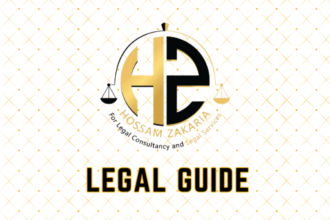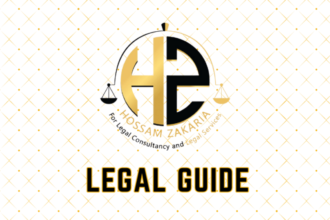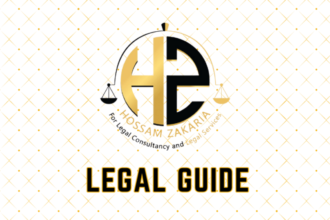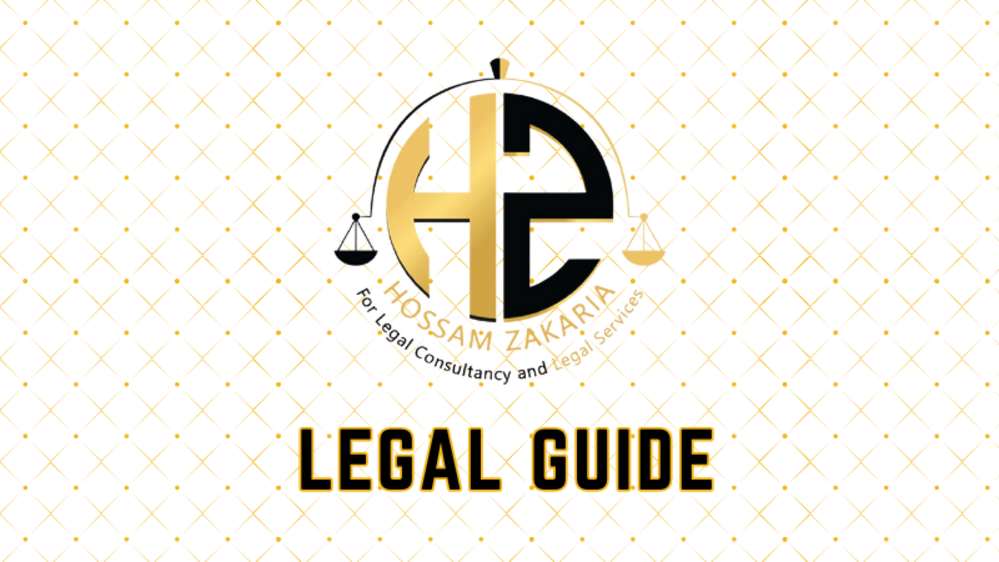Introduction: Elevating Legal Awareness in Qatar International Air Transport Agreements
In today’s rapidly evolving global economy, the strategic relevance of international air transport agreements cannot be overstated. For organizations and legal professionals operating from the United Arab Emirates (UAE)—a vital aviation and business hub in the Middle East—understanding the dynamics of Qatar’s international air transport agreements is essential. Not only do these accords shape commercial aviation, market access, and regulatory compliance, but recent legal reforms, including updates to UAE federal decrees and aviation protocols, have amplified their impact. This comprehensive legal guide provides deep analytical insights, practical compliance recommendations, and commentary on the interplay between Qatar’s air transport framework and the UAE legal environment in 2025. It is tailored for executives, corporate counsel, and industry leaders seeking actionable guidance in navigating the region’s aviation legal landscape.
The significance of this subject for UAE-based stakeholders is further underscored by the increased interconnectivity following the restoration of diplomatic ties and the exponential growth in air traffic between Qatar and the UAE. Businesses now face more complex regulatory challenges, particularly regarding bilateral obligations, open skies policies, and compliance with both Qatari and UAE legislative frameworks. This article elucidates the latest legal developments, with references to relevant UAE federal decrees, cabinet decisions, and ministerial guidelines, ensuring that professionals can leverage authoritative advice to mitigate legal risk and capitalize on emerging market opportunities.
Table of Contents
- Overview of Qatar International Air Transport Agreements
- UAE Legal Framework Governing International Air Transport
- Structure and Content of Qatar’s Bilateral and Multilateral Agreements
- Recent Legal Developments and UAE Law 2025 Updates
- Compliance Implications for UAE-Based Stakeholders
- Risks of Non-Compliance and Mitigation Strategies
- Case Scenarios and Practical Applications
- Comparative Analysis: Historical and Current Legal Provisions
- Conclusion and Forward-Thinking Legal Guidance
Overview of Qatar International Air Transport Agreements
Legal Foundations and International Context
Qatar’s approach to international air transport is grounded in a series of bilateral and multilateral agreements designed to liberalise air services, promote market access, and ensure regulatory harmonization. Core agreements include:
- Chicago Convention on International Civil Aviation (1944)
- Bilateral Air Services Agreements (ASAs) between Qatar and other states, including the UAE
- Multilateral frameworks such as the Arab Civil Aviation Commission agreements
These instruments regulate key parameters such as route rights, frequency, capacity, safety standards, and commercial freedoms of airlines. The Chicago Convention, ratified by both Qatar and the UAE, forms the legal bedrock for civil aviation cooperation, delegation of regulatory duties, and dispute resolution protocols. In addition, the Arab Open Skies Agreement, to which both Qatar and the UAE are signatories, aims to advance regional economic development by fostering unrestricted access among member states.
Qatar-UAE Air Transport Dealings: Historical and Legal Relevance
The Qatar-UAE bilateral agreement has seen significant evolution, especially post-2021, when diplomatic relations were fully restored. This accord governs authorization rights for designated carriers, tariff regulations, and mutual recognition of aviation certifications. Importantly, the terms of the bilateral agreement directly influence commercial aviation activity between Doha, Abu Dhabi, Dubai, and beyond, impacting flight frequency, airline alliances, and ground service logistics.
UAE Legal Framework Governing International Air Transport
Federal Law No. 20 of 1991 and Regulatory Jurisdiction
The UAE’s overarching aviation statute, Federal Law No. 20 of 1991 on Civil Aviation, outlines critical obligations for foreign and local operators, including licensing, airspace usage, safety surveillance, and coordination with the General Civil Aviation Authority (GCAA). Cabinet Resolutions (such as Cabinet Decision No. 13 of 2023) regularly update compliance mechanisms in line with evolving international standards.
| Legal Instrument | Scope of Regulation | 2023 Version | 2025 Update |
|---|---|---|---|
| Federal Law No. 20/1991 | Licensing, Airspace Access | Traditional process | Streamlined with digital compliance registry |
| Cabinet Decision No. 13/2023 | GCAA Oversight, Reporting | Statutory reporting | Real-time electronic reporting mandate |
| Ministerial Guideline 21/2022 | Safety, Security | Manual audits | Concurrent with ICAO’s new safety annexes |
Operationalization in the Qatar Context
Executives should note that Qatari carriers operating into the UAE must comply not only with Qatari law, but also the latest UAE aviation protocols, including those on safety data exchange, environmental standards, data protection (per the UAE Data Protection Law, Federal Decree-Law No. 45 of 2021), and employee work permits for ground staff. Conversely, UAE operators flying into Qatar must meet similar Qatari civil aviation requirements, introducing a matrix of bilateral obligations that heighten compliance complexity.
Structure and Content of Qatar’s Bilateral and Multilateral Agreements
Core Elements of Bilateral Air Services Agreements
Key clauses in typical Qatar-international air agreements include:
- Designations and Authorizations: Mechanisms for each country to designate its airlines and grant operational authority.
- Route Schedules: Lists of authorized destinations and permitted frequencies.
- Regulatory and Safety Oversight: Provisions for mutual recognition or validation of certifications, and safety audit protocols.
- Tariff and Competition Provisions: Stipulations for price controls, fair competition, and dispute resolution (often via arbitration).
An illustrative structure comparison is set out below:
| Provision | Qatar-UAE Bilateral | Arab Open Skies |
|---|---|---|
| Route Rights | Designated routes & frequencies | Liberalized, all major cities included |
| Safety Standards | ICAO standards, mutual recognition specific audits | Block recognition, periodic regional audits |
| Slot Allocation | Based on existing airport capacity | Flexible; subject to regional traffic agreements |
Strategic Impacts of Modernization Clauses
Recent updates, particularly in light of the digital transformation of aviation regulation, include clauses on electronic recordkeeping, sharing of aviation security threat intelligence, and sustainable aviation fuels. These increasingly affect risk management responsibilities for both legal departments and operational teams within UAE aviation businesses.
Recent Legal Developments and UAE Law 2025 Updates
International Liberalization Initiatives
In 2024 and 2025, Qatar accelerated its policy alignment with Gulf Cooperation Council (GCC) states, including the UAE, introducing deregulatory measures on slot allocation, introducing environmental safeguards, and agreeing on harmonized passenger data protection rules. As a result, both nations have witnessed an uptick in new routes, greater cooperation on cargo liberalization, and a push towards integrated digital border clearance systems.
UAE-Driven Legal Innovations
- Mandatory Electronic Document Exchange: Introduced by the UAE GCAA to harmonize with Qatar Civil Aviation Authority (QCAA) digital initiatives.
- Stricter Data Privacy for Passenger Data: Stemming from Federal Decree-Law No. 45 of 2021, requiring explicit consent from passengers for data processing on inter-GCC flights.
- Green Aviation Regulation: The UAE’s Ministry of Climate Change and Environment works with the GCAA to mandate sustainable fuel blends and emissions reporting for all international carriers, including Qatari ones operating to and from UAE airports.
Such reforms have direct relevance for compliance departments, requiring updates to standard operating procedures, crisis management plans, and contractual templates for cross-border operations.
Compliance Implications for UAE-Based Stakeholders
Cross-Border Regulatory Obligations
The reciprocal nature of Qatar-UAE aviation agreements means that airlines, charter operators, ground handling companies, and logistics providers in the UAE must constantly reassess their legal exposure. Specific compliance implications include:
- Licensing and operational permits for UAE-based carriers entering Qatari airspace
- Adherence to dual safety audit requirements
- Real-time electronic reporting to both the GCAA and QCAA
- Enhanced transparency requirements for ticket pricing and marketing
Corporate Governance and Due Diligence
UAE firms must ensure their compliance frameworks are robust and regularly updated. Compliance strategies should include:
- Conducting ongoing internal audits aligned with both UAE and Qatari regulatory calendars
- Integrating legal updates into employee training programs (suggested: periodic workshops on ASA obligations and digital compliance)
- Adopting legal risk management technologies for document control and audit trail preservation
Risks of Non-Compliance and Mitigation Strategies
Potential Legal Penalties and Enforcement Risks
| Infraction | Penalty (Pre-2023) | Penalty (2025 Update) |
|---|---|---|
| Operating without proper authorization | Fine up to AED 200,000 | Fine up to AED 750,000 + license suspension |
| Security data breach | Warning or license review | Substantial fines + mandatory public disclosure |
| Failure to comply with environmental rules | Minimal sanctions | Mandatory corrective action + fines, per MOCCAE guidelines |
The increased severity of fines and the introduction of progressive penalties (potential cumulative sanctions for repeat offenders) requires businesses to proactively manage their obligations. The risk of reputational harm, especially where incidents lead to high-profile enforcement actions or public disclosures, also merits careful attention from executive leadership.
Effective Compliance Approaches
- Internal Audits: Annual, preferably quarterly, independent compliance reviews to check adherence with both UAE and Qatari aviation laws.
- Contractual Safeguards: Revising all commercial contracts to reflect updated regulatory language, including force majeure and change-of-law provisions.
- Role-Specific Training: Focused training for operational, legal, and risk management teams on latest bilateral agreement stipulations and digital reporting requirements.
- Regulator Engagement: Appoint a designated regulatory affairs liaison officer for direct communications with both the GCAA and the QCAA, facilitating prompt issue resolution and regulatory updates.
Suggested Visual: Compliance Checklist flowchart; elements: Licensing, Safety Audit, Data Privacy, Environmental Reporting, Regulator Notification.
Case Scenarios and Practical Applications
Hypothetical Case Study 1: UAE Airline Expanding into Qatar
Scenario: An Abu Dhabi-based airline plans to add new routes to Doha.
- Legal Steps: Secure designation under Qatar-UAE bilateral, validate compliance with Qatari licensing and security audit requirements, and update data processing protocols to align with both nations’ laws.
- Risk Points: Underestimating the scope of Qatari data protection enforcement, failing to incorporate QCAA sustainability rules in fleet management.
- Resolution Strategy: Early engagement with legal counsel in both jurisdictions, incorporating dual audit review schedule, and amending employment contracts for ground staff stationed in Qatar.
Hypothetical Case Study 2: Qatari Cargo Operator at Dubai Airports
Scenario: A Qatar-based cargo airline deploys a logistics team to Dubai World Central (DWC).
- Legal Steps: Apply for specific UAE work permits under updated MOHRE circulars (2024), register with the UAE GCAA’s digital portal, ensure cargo data processed is managed in line with Federal Decree-Law No. 45 of 2021.
- Risk Points: Delays in digital registrations leading to enforcement action; miscommunication regarding union or labor rights for Qatar-based staff.
- Resolution Strategy: Proactive onboarding via GCAA digital registry, dedicated compliance workshops for cargo team, legal monitoring of emerging MOHRE and GCAA regulations.
Comparative Analysis: Historical and Current Legal Provisions
| Aspect | Historical Practice (Pre-2023) | Current 2025 Practice |
|---|---|---|
| Route Designation | Annual bilateral meetings; paper-based approvals | Automated digital exchange, real-time updates |
| Data Privacy Protection | Basic confidentiality undertakings | Explicit passenger consent, real-time breach reporting |
| Environmental Compliance | Voluntary noise and emission standards | Mandatory reporting, audit-based enforcement |
| Dispute Resolution | Government-to-government diplomatic channels | Binding arbitration; mutual recognition of arbitral awards |
This comparative approach underlines the drive toward enhanced transparency, efficiency, and accountability across both Qatari and UAE aviation sectors, in alignment with global best practices and International Civil Aviation Organization (ICAO) recommendations.
Conclusion and Forward-Thinking Legal Guidance
Qatar’s international air transport agreements—particularly in association with the UAE—define the legal, operational, and commercial landscape for cross-border aviation well into the future. The modernization of these accords, together with robust UAE federal legal updates enacted throughout 2024 and 2025, places renewed emphasis on compliance, sustainability, data protection, and digital transformation.
For UAE-based stakeholders, remaining proactive is paramount. Best practices emerging from our consultancy-grade analysis include establishing real-time compliance monitoring systems, routinely engaging with aviation regulatory bodies, integrating cross-border legal updates into all layers of corporate governance, and investing in capacity-building initiatives for key staff. As regional aviation continues to evolve, those who anticipate regulatory trends and integrate compliance-by-design will maintain a competitive and reputational advantage.
In summary, the intersection between Qatar’s aviation agreements and the UAE’s advanced legal infrastructure calls for a holistic compliance culture anchored in ongoing legal education, strategic risk assessment, and agile adoption of regulatory technology. Consult with specialized legal advisors to tailor strategies specific to your operational profile and emerging aviation law developments in the GCC.



